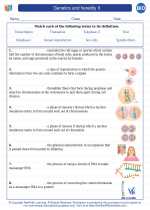Techniques in Biology
Biology is a science that involves the study of living organisms and their interactions with each other and the environment. In order to study and understand various biological processes, scientists and researchers use a wide range of techniques and tools. These techniques allow them to observe, manipulate, and analyze biological systems at different levels, from molecules and cells to organisms and ecosystems.
Common Techniques Used in Biology
There are several common techniques used in biology, each serving a specific purpose in the study of living organisms. Some of these techniques include:
- Microscopy: Microscopes are essential tools for biologists to observe and study cells, tissues, and microorganisms. Different types of microscopes, such as light microscopes, electron microscopes, and confocal microscopes, are used to visualize biological structures at different levels of magnification.
- PCR (Polymerase Chain Reaction): PCR is a technique used to amplify a specific segment of DNA through a series of temperature changes. This allows researchers to create multiple copies of a DNA sequence for further analysis, such as DNA sequencing or genetic testing.
- Cell Culture: Cell culture techniques involve growing and maintaining cells in a controlled environment outside of an organism. This allows researchers to study cell behavior, perform experiments, and produce specific cell types for various applications, including medical research and biotechnology.
- Chromatography: Chromatography is a technique used to separate and analyze mixtures of biological molecules, such as proteins, nucleic acids, and metabolites. Different types of chromatography, including gas chromatography, liquid chromatography, and affinity chromatography, are used based on the properties of the molecules being separated.
- Immunohistochemistry: This technique is used to visualize the distribution and localization of specific proteins in tissues using antibodies that bind to the target proteins. It is commonly used in histology and pathology to study the expression of proteins in cells and tissues.
- Electrophoresis: Electrophoresis is a technique used to separate and analyze macromolecules, such as DNA, RNA, and proteins, based on their size and charge. Gel electrophoresis, in particular, is widely used for DNA fingerprinting, genetic testing, and protein analysis.
Importance of Techniques in Biology
The use of techniques in biology is crucial for advancing our understanding of living organisms and their underlying mechanisms. These techniques enable researchers to:
- Observe and study biological structures and processes at various levels of organization.
- Analyze and manipulate biological molecules, such as DNA, RNA, proteins, and metabolites.
- Investigate the functions and interactions of cells, tissues, and organisms.
- Develop new diagnostic tools, therapies, and biotechnological applications.
- Contribute to the fields of medicine, agriculture, environmental science, and biotechnology.
Study Guide: Techniques in Biology
If you're studying techniques in biology, here are some key points to focus on:
- Understand the purpose and principles behind each technique mentioned above.
- Learn about the specific applications of each technique in biological research and practical settings.
- Explore the advantages and limitations of different techniques and their relevance to specific biological questions or problems.
- Practice interpreting data and results obtained from various biological techniques, such as microscopy images, chromatograms, and electrophoresis gels.
- Stay updated on recent advancements and emerging techniques in the field of biology, including the integration of new technologies and interdisciplinary approaches.
By mastering these concepts and skills, you'll be able to appreciate the significance of techniques in biology and apply them to your own scientific inquiries and experiments.
[Techniques] Related Worksheets and Study Guides:
.◂Biology Worksheets and Study Guides High School. Genetics and heredity II
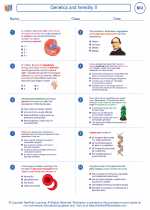
 Worksheet/Answer key
Worksheet/Answer key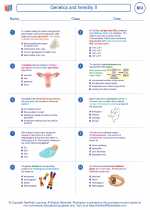
 Worksheet/Answer key
Worksheet/Answer key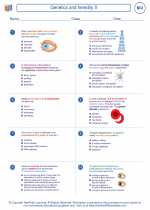
 Vocabulary/Answer key
Vocabulary/Answer key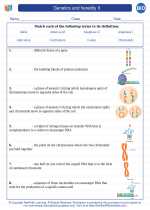
 Vocabulary/Answer key
Vocabulary/Answer key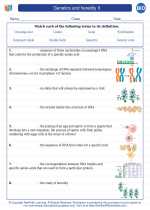
 Vocabulary/Answer key
Vocabulary/Answer key
 Vocabulary/Answer key
Vocabulary/Answer key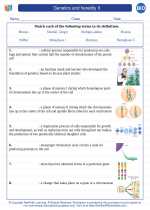
 Vocabulary/Answer key
Vocabulary/Answer key
 Vocabulary/Answer key
Vocabulary/Answer key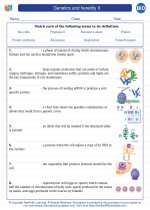
 Vocabulary/Answer key
Vocabulary/Answer key